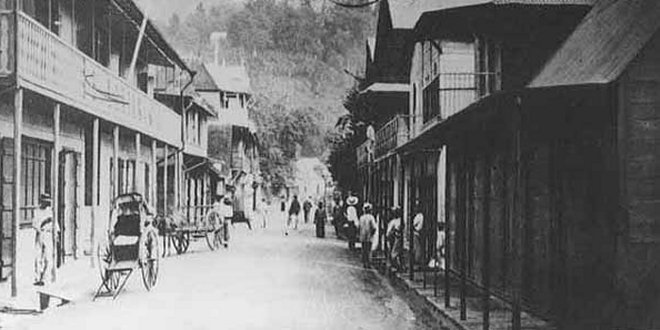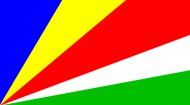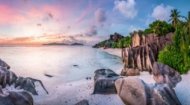|
Victoria Profile |
Victoria Profile |
Victoria Profile | Victoria Profile |
Explore all about the Seychelles islands in our Seychelles profile pages in articles and images.
More >
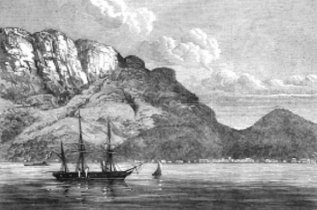 |
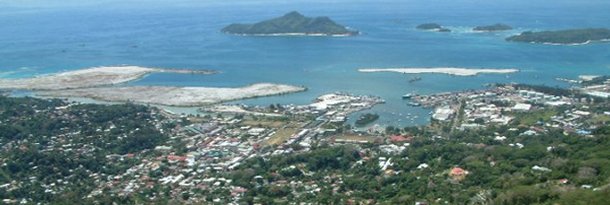
|
In the early nineteenth century most of the population of Victoria worked on white owned farms producing maize, rice, cotton and sugar cane. However, after the abolition of slavery there in 1834, many settlers left with their slaves with 'replacement' incomers arriving from India, China and Malaysia. They set themselves up as shop keepers and traders to supplement the growing number of other settlers, many of them former slaves freed from slave ships by the British Navy operating in the Indian Ocean. The British had little interest in the Seychelles during this period, seeing it as a burden as the plantations were in decline due to over-farming, former slaves held no land and squatted where they could and there was little income from exports to develop the island's infrastructure to meet its growing population. During this period the Seychelles were largely dependent on imports to survive, and there was a growing resentment at colonial rule from Mauritius to some extent spurred by Mauritius's poor response to the avalanche of 1862 which killed 70 in Victoria alone and damaged much of the town. Colonial administrative rule was transferred to Victoria from Mauritius in 1897 with the island being granted separate Crown Colony status in 1903. Following independence from the UK in 1976, Victoria remained the archipelago's capital. Today Victoria, with its population of around 26,450, reflects its history of settlement by African, French, British, Indian, and Chinese peoples. The primary language is Seychellois Creole (Kreol Seselwa), a French-based creole that is the nation's lingua franca, however English remains an official language as well due to its colonial past. Victoria's social profile is characterised by a laid-back, friendly atmosphere with life there moving at a distinctly slower pace than in most other capitals. Business meetings might start with a relaxed chat, and the afternoon heat often encourages a more leisurely approach to work. Community and family are the cornerstones of society, and the city, despite being the nation's most urban area, retains a strong sense of community where familiar faces greet each other on the street. While tourism is the undisputed titan of the Seychellois economy, all major government buildings, banks, and corporate headquarters are located within its compact limits offering employment. The Port of Victoria, a busy deep-water harbour, welcomes not only the cruise ships that bring thousands of visitors but also the vital container ships that import everything from food and fuel to construction materials. The port is also central to another key industry: fishing as the Seychelles boasts one of the largest tuna canning factories in the world, and the Port of Victoria is crucial for its export operations. In recent years, the government has championed the concept of the "Blue Economy," focusing on the sustainable development of its vast oceanic resources. Victoria is at the forefront of this initiative, housing the research and administrative bodies driving this vision for a future that balances economic growth with marine conservation. A day in Victoria typically begins and ends at the Sir Selwyn Selwyn-Clarke Market where fishermen display their catches of red snapper and tuna, while vendors arrange colourful pyramids of tropical fruits, vegetables, and aromatic spices including cinnamon and vanilla. Beyond the market, Victoria’s streets are dotted with points of interest. The city's most iconic landmark is a miniature silver clocktower. Erected in 1903 in memory of Queen Victoria, this Lorloz (the Creole word for clock) is an elegant replica of a clocktower that once stood near London's Victoria Station, earning it the affectionate nickname "Little Ben." A short walk away, you can find the quiet halls of the National Museum of History, which offers insights into the archipelago’s past. Also worth visits are the Anglican St. Paul's Cathedral and the imposing Roman Catholic Cathedral of Our Lady of Immaculate Conception. In stark contrast, the colourful Arul Mihu Navasakthi Vinayagar Temple represents the Indo-Seychellois community, its intricate carvings of Hindu deities adding a splash of unexpected colour to the urban landscape. For a moment of tranquillity, the Seychelles National Botanical Gardens lie on the city's outskirts. There the visitor can wander among endemic palms, including the legendary Coco de Mer, and meet the resident population of giant Aldabra tortoises.
Like any city, Victoria faces its share of challenges. Its small size, once a charm, now presents a significant constraint. Traffic congestion on its narrow roads can be intense, and there is limited physical space for expansion. As an island nation heavily reliant on imports, the cost of living in Victoria can be high for its residents. Perhaps more profoundly, the city, like the rest of the Seychelles, is on the front line of climate change. The threat of rising sea levels and an increase in extreme weather events poses a long-term risk to its coastal infrastructure and way of life, making the national push for sustainability and environmental resilience more critical than ever. The video above provides further insights into Victoria's profile. |
